5 Famous Atheists in Literature
In a recent Slate article Dan Falk asks, “Was Shakespeare an atheist?” and concludes that he very well may have been. But Shakespeare is hardly alone on a list of literary figures who questioned the reality of a deity. Here are some other famous writers who dared to question the authority of religion.
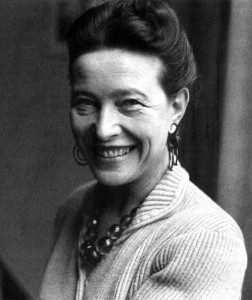 Simone de Beauvoir
Simone de Beauvoir
Feminist, writer and noted atheist Simone de Beauvoir (1908-1986) originally wanted to become a nun—as a child, she was educated in a convent school, at the direction of her devoutly Catholic mother. At the age of 14, however, she sharpened her critical thinking skills, questioned her faith and concluded that there was no God. Instead of dedicating her life to religion, she chose to pursue philosophy.
As a result of her decision, Western thinking was forever changed. Her writings significantly influenced existentialist philosophy, founded on the notion that the individual, not society or religion, is responsible for creating meaning in life. However, Beauvoir is perhaps best known as the author of the revolutionary feminist book, The Second Sex. First published in 1949, it paved the way for the women’s rights movement of the 1970s and continues to influence today’s activists. Because Beauvoir interrogated her religious upbringing and questioned the concept of a deity, our culture has been transformed.
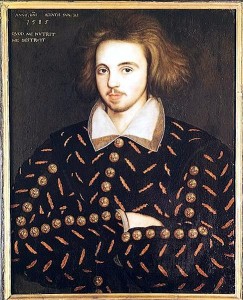 Christopher Marlowe
Christopher Marlowe
Christopher Marlowe (1564-1593) was a playwright and poet, best known for Doctor Faustus, a controversial play about a scholar who makes a deal with the devil. Another of his provocative works, the poem Hero and Leander, suggests that he may have engaged in same-sex relationships. In Elizabethan England, homosexuality was considered an affront to the church and punishable by death, so Marlowe had reason to question the religious norms of his day. In May of 1593 he was accused of authoring heretical tracts that, among other things, criticized the Virgin Mary and urged readers against gullibly falling for superstitions. A warrant was put out for his arrest, and only a few days later, he was stabbed to death.
No one knows if Marlowe’s murder was directly related to his atheism, but his criticism of religious doctrine in his plays and other writings was bold at a time when atheism was grounds for capital punishment. Rather than conform to the orthodoxy of his day, he bravely and honestly penned his skepticism, despite the consequences.
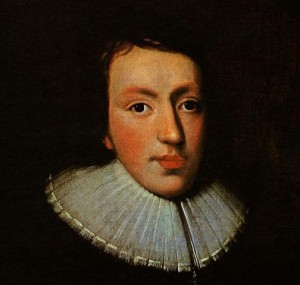 John Milton
John Milton
Some might be surprised to learn that John Milton (1608-1674), the man best known for his religious epic poem Paradise Lost, could have actually been an atheist. Many literary critics have posited that Milton may very well have identified with Satan’s rebellion against God and his famous assertion that it is “better to reign in Hell than to serve in Heaven.”
We do know for certain that Milton critically examined many theological doctrines. For example, he denied the concept of the Trinity (the Christian notion that God is one in three persons). He also criticized the Catholic Church and the Church of England and argued for a secular state. Milton did not blindly adhere to the teachings of religion, but instead questioned the dogmas of his day.
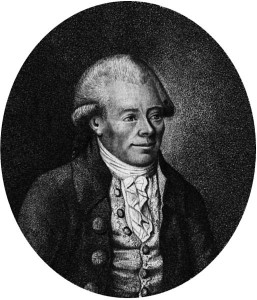 Georg Christoph Lichtenberg
Georg Christoph Lichtenberg
Author of the humorous quote, “I thank the Lord a thousand times that he let me become an atheist,” George Christoph Lichtenberg (1742-1799) was a writer and a satirist. His witty sayings and wry reflections on life were undiscovered until after his death, but they inspired other great thinkers such as Freidrich Nietzsche and Sigmund Freud. Unsurprisingly, organized religion and its hypocrisy were often the subject of his satire.
Lichtenberg’s dedication to critical thinking also made him a brilliant physicist. His work in electricity paved the way for today’s copy machines and laid the foundations for plasma physics. His writings on both religion and science reveal his passion for inquiry and his value of reason. His honest criticisms of religious institutions are as apt today as they were in the 18th century, and they’re just as likely to make some people uncomfortable. However, as Lichtenberg said himself, “It is almost impossible to carry the torch of truth through a crowd without singeing somebody’s beard.”
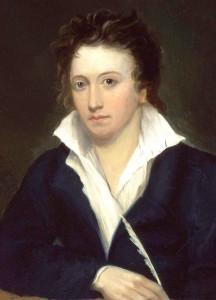 Percy Bysshe Shelley
Percy Bysshe Shelley
Percy Bysshe Shelley (1792-1822) is best known for his Romantic poetry. He is less known for his atheism, though his prose piece The Necessity of Atheism clearly articulates his disbelief. Shelley also expressed opinions that sound much like humanism, asserting that people can be good without God by using reason as an ethical guide.
Shelley paid dearly for his audacity. In 1811, when The Necessity of Atheism was first published, the tract caught the attention of the administration at Oxford University, where Shelley was a student. The deans gave him the choice between renouncing his writings or facing expulsion. Shelley stood firm in his convictions, and so he lost his place at the university. His powerful father pulled some strings and attempted to have him reinstated, but Shelley still would not recant his writings. His stalwart dedication to intellectual honesty caused a falling out with his father, a situation far too many atheists are familiar with today.
This is certainly not a comprehensive list of famous writers who were also atheists. Many individuals who penned our literary canon expressed skepticism regarding institutionalized religion and the existence of God. But finding atheists among the authors of our classics shouldn’t be surprising. After all, great literature encourages us to expand our imagination so that we see the world in new ways. That kind of creative reflection can lead to innovative ways of thinking, especially atheism and humanism.
